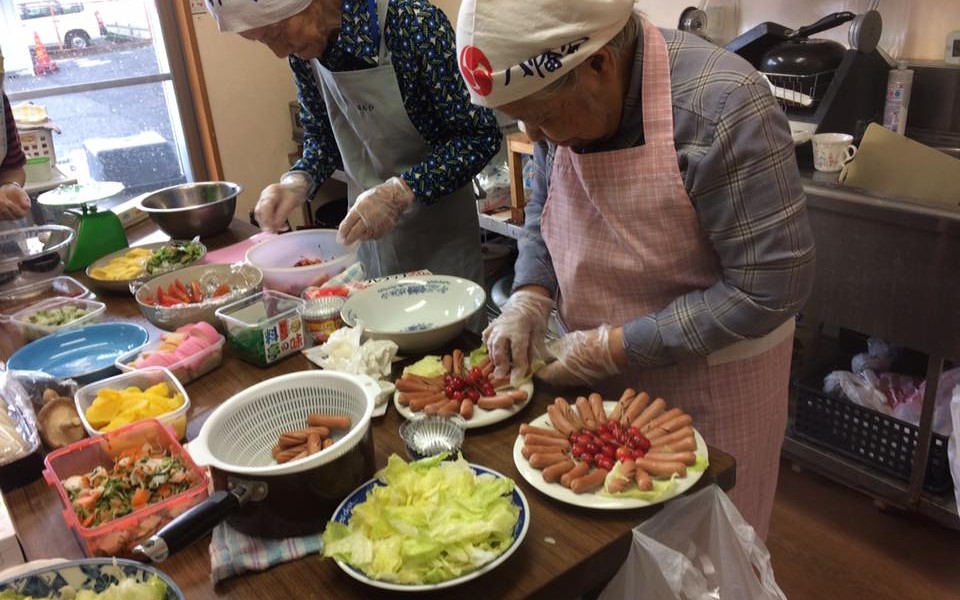To work and get paid.
At group-home Haruhi-en
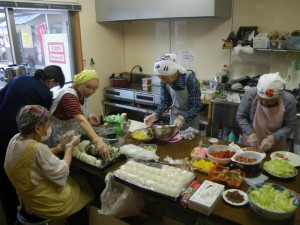
Our residents joined the part-time workers at Kazami to make lunch for the customers today as well.
Well, still on probation, but –
To work and get paid is to make our residents tied with the society, to feel tied to the society, and to feel needed in the society.
Half an hour, an hour work – don’t matter.
To work and get paid make them feel self-efficient, that is, feel confident.
“I feel very bad at bothering my family financially.”
Some of our residents live in our facility, feeling small like this.
Well, what about their working and getting paid?
To work and get paid.
We’ve have worked with them and understood that they could work at the place other than group-home for the dementia with a bit of support.
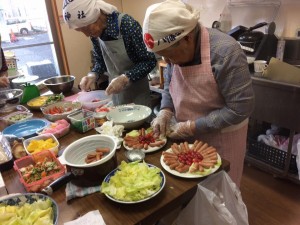
After all, we’ve kept the people with dementia away from the society, because of their symptoms, and their being in such facilities?
How would it go, if they were tied to the society, and they worked and got paid to buy their own things or to reduce their families’ financial burden?
Are they too old to work and get paid?
Nay, many think they are worthy of it!
It seems even rude for them to play housekeeping at group-home or other facilities, keeping them away from the society.
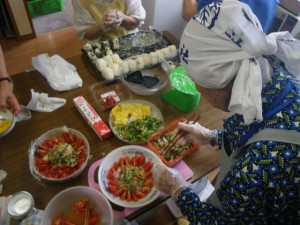
We hear such conversations like this;
“I’ve got to get interviewed and employed.”
“I’ve never ever got paid! What’s going on!?”
Well, That’s the way they feel.
“We can do it better!”
“We want to do it more!”
I guess we’ve made light of their possibilities.
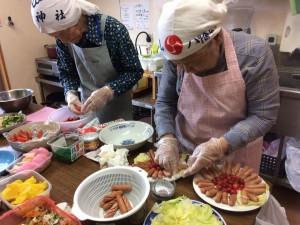
Of course, the rules of society are very tight.
Different from those of group-home, here they have to keep up with the other part-time workers.
They focus to try their best, and accomplish their job in a tensed mood, however.
It brings them a good sense of accomplishment.
“Wow! You are really good at dishing up!”
(That’s true. She arranged boiled fish pastes sideways. She wouldn’t think as we do. Far from stereotypes like us. She would only arrange them as they really look nice.)
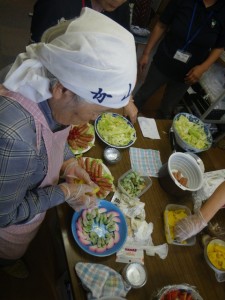
“Oh, great! I will bring my kitchen knives next time. Why don’t you sharpen them?”
(Well, he practiced much more than us. He is much better with hands than us!)
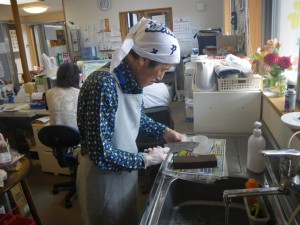
“It was fun!” “I was so busy, but it was fun!” “Would you take us there again?”
They said to me in car on the way back to our group-home.
How come working motivates them like this?
They spent time with good smile all afternoon, though they’d forgotten working there in the morning.
To feel efficient and appreciated by working and helping people, would be one of the best medicines for all of us, isn’t it?
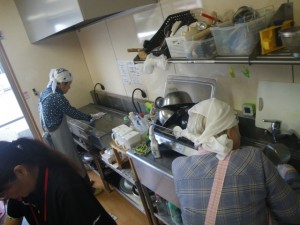
Haruhi-Blog
